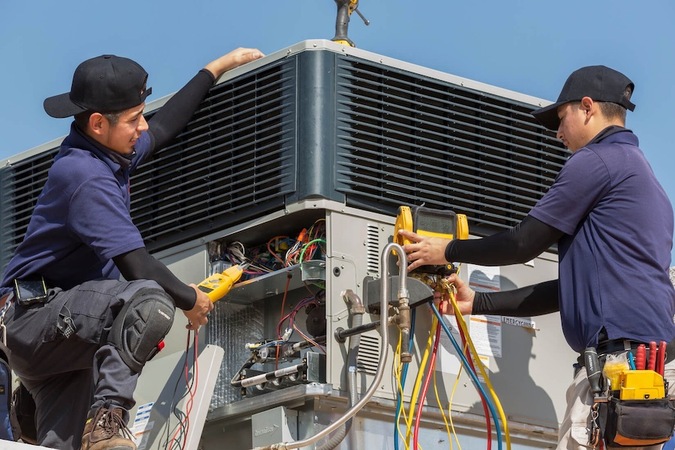HVAC technicians, or heating, ventilation, and air conditioning technicians, are skilled professionals responsible for installing, repairing, and maintaining HVAC systems in residential, commercial, and industrial settings. These systems include heating and cooling systems, as well as ventilation systems that provide fresh air to buildings and remove stale air.
HVAC technicians work with various equipment, including furnaces, air conditioners, boilers, heat pumps, and ductwork. They must have a strong understanding of the principles of thermodynamics, refrigeration, and electrical systems, as well as the ability to troubleshoot and repair complex mechanical systems.
Responsibilities of an HVAC Technician
The responsibilities of an HVAC technician vary depending on their specialization and the type of system they are working on. However, some common tasks include:
Installing HVAC systems: HVAC technicians install new HVAC systems in buildings, including ductwork, thermostats, and other components.
Maintaining HVAC systems: Regular maintenance is crucial to keep HVAC systems running efficiently and to prevent breakdowns. HVAC technicians perform routine maintenance, such as replacing filters, checking refrigerant levels, and cleaning ducts.
Repairing HVAC systems: When HVAC systems break down or malfunction, HVAC technicians diagnose and repair the problem. This may involve replacing parts, repairing electrical systems, or fixing leaks in refrigerant lines.
Troubleshooting: HVAC technicians must be able to identify problems and develop solutions quickly. This requires strong problem-solving skills and the ability to think on their feet.
Providing customer service: HVAC technicians often work directly with customers, explaining the problem with their system and answering questions about repairs or maintenance.
Becoming an HVAC Technician
Becoming an HVAC technician requires specialized training and education. Most HVAC technicians have a high school diploma or equivalent and complete a training program at a community college, technical school, or vocational school. These programs typically last 6 months and 2 years and cover electrical systems, refrigeration, and air conditioning topics.
After completing an HVAC training program, many technicians gain experience through an apprenticeship program. These programs typically last 3 to 5 years and involve on-the-job training under the supervision of an experienced technician.
In addition to education and experience, most HVAC technicians are required to obtain certification or licensure. This typically involves passing an exam that covers knowledge and skills related to HVAC systems and safety regulations. Several organizations offer certification for HVAC technicians, including the North American Technician Excellence (NATE) and the HVAC Excellence Certification Program.
HVAC technicians are crucial in maintaining comfortable and safe indoor environments in homes, businesses, and industrial settings. They are skilled professionals with specialized training, education, and a strong understanding of complex mechanical systems. If you’re interested in pursuing a career as an HVAC technician, it’s essential to research the field and gain the necessary education and experience to become a successful professional.
